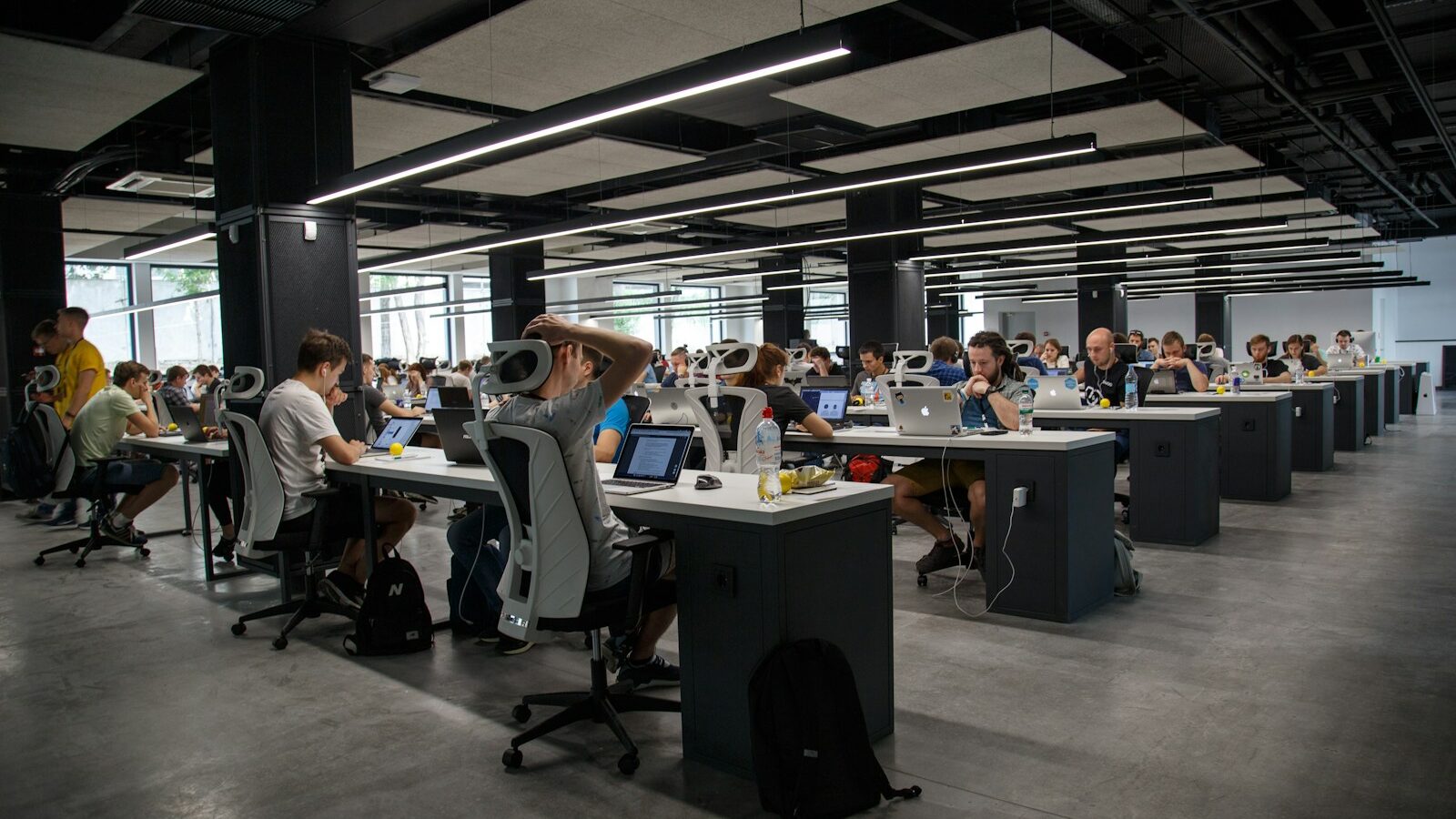Casting a vision for human-AI hybrid coaching practice
In an era of technological advancement, coaches are experimenting with human-AI hybrid coaching practices to engage clients in new ways. While AI cannot replace the human touch, it offers opportunities to augment coaching practices.
Challenge:
Some coaches are hesitant to adopt technology in their coaching practice, fearing AI chatbots will replace them
Opportunity:
AI tools can be used in multiple coaching contexts to summarize a new topic, analyze data, and prompt reflection
Impact:
When used as a supplement to human coaching conversations, AI can emphasize human engagement and discovery
Wisdom Weavers
Emerging AI tools are already informing digital coaching practice
Artificial Intelligence (AI) is already proving successful in the digital coaching landscape. On an administrative level, AI applications can streamline tasks like scheduling, coach-client matching, and client onboarding. Platforms are actively using these technologies to collect and analyze client data to support organizational coaching strategy and to help measure coaching impact. As a standalone product, AI coaching tools like Ovida provide feedback on coaching sessions to help coaches strengthen their skills. These integrations can be characterized by ‘AI as a decision-making tool.’ However, with new developments in Large Language Models and Generative AI that can replicate basic human conversations, coach tech leaders are now pivoting to apply ‘AI as a co-coaching tool.’
Research in coaching chatbots
Research in coaching chatbots is rapidly developing. When researching client goal attainment using coaching chatbots, Wisdom Weaver Nicky Terblanche found that his chatbot Coach Vici was just as successful in supporting goal attainment as a human coach. As a non-commercial research tool, CoachHub launched AIMY™ to replicate basic coaching conversations and eventually develop to apply multiple coaching frameworks. Other chatbots like evoach’s Alpina chatbot and EZRA’s AI assistant CAI are currently being used to maintain client engagement through reminders, nudges, and small coach-like conversations.
Between-session maintenance through coaching chatbots is only one potential application for these emerging technologies. Blending human and artificial intelligence in real-time may create innovative hybrid coaching practices where AI acts as a coaching multiplier. However, as coaching chatbots improve, the industry will likely need to grapple with the implications of ‘AI as a coaching substitute.’
“A world where highly capable digital agents are ubiquitous is on the way and will affect every service-based and advice-based profession. Coaching is unique because it is highly empathetic, and humanity is often at the center. There is no replacement for the feeling that someone believes in you, sees you, and understands you. These models can do a lot, but people will still desire that personal connection. And so, what does the world of hybrid coaching look like? I believe AI coaching can introduce more people to the value of coaching, eventually boosting demand for high-quality human coaching and expanding the industry overall.”

How will AI continue to augment coaching practice?
- AI as a business assistant: Coaches leverage AI to lift the operational burden of running a business. New models can generate full websites, apps, logos, and courses from a few descriptive sentences, saving time and money for coaches to focus more on helping people.
- AI as a decision-making tool: Coaches predominantly use AI to analyze data and inform administrative decisions or track client progress.
- AI as a co-coaching tool: AI facilitates limited coach-like conversations that still require human coaching oversight. These conversations can support clientonboarding, maintenance, and on-demand support.
- AI as a coaching substitute: AI chatbots facilitate limited coach-like conversations without human oversight, providing cost-effective and on-demand coaching support.
- AI as a coaching multiplier: AI-human hybrid coaching applies AI in real-time coaching sessions to understand potential scenarios and allow human coaches to dig deeper with clients.
Hybrid coaching approaches could help provide new insight and reduce human error
The rapid growth of AI investments globally highlights its transformative potential. Goldman Sachs estimates that global investment in AI research and development will reach $200 Billion USD by 2025. The increased adoption of AI tools and research in AI-enhanced coaching signal major disruption in the coaching industry. Because coaching platforms are leveraging partnerships with industry researchers and engineers, these providers are able to create personalized, flexible, and measurable coaching packages for large organizational clients. Individual coaching practitioners are also adopting AI tools to simplify client engagement through their personal practice. Others are capitalizing on the growth of online marketplaces to work as freelancers as part of the gig economy.
Beyond reflective questions
With advancements in AI coaching chatbots, Wisdom Weaver and founder of AceUp Will Guillaume Foussier sees these technologies multiplying coaching impact through simplified delivery and client maintenance. “Mobile adoption enables ‘coaching in the flow of work’ and combines coaching intervention sessions with microlearning, micro-nudges, and moments that can accelerate reflection and refinements.” These data points can strengthen growth and the adoption of new behaviors, he adds, while also helping coaches better understand their clients. As a standalone service, Will believes chatbots are effective at prompting reflection, but cannot fully replicate the role of a coach. This philosophy drives AceUp to apply AI in a way that reinforces motivation, learning, and growth between sessions to build momentum for human coaching conversations.
Redefining coaching delivery
As part of a hybrid coaching practice, AI may augment how coaches interact with clients. Wisdom Weaver and coach tech founder Alex Haitoglou reflects that human conversations often follow patterns where both parties review past interactions before diving into the topic at hand, meaning that coaching sessions often take 30–60 minutes. However, AI tools that track goals and progress would allow coaches to dive directly into new topics. He asks, “Could a coach be available not only once every two weeks for one or two hours but much more often for small micro-coaching discussions that last five minutes? How might technology change this model?” By delivering micro-coaching sessions with greater frequency, coaches work with clients to focus on a single behavior or mindset, providing regular feedback to help clients navigate change. AI plays a supporting role by keeping a history that tracks the factors contributing to adopting the new behavior and mapping client growth.
AI’s role in goal tracking
As these tools advance, Wisdom Weaver Tim Harrison believes AI can provide unparalleled personalization. “Emerging research indicates that Large Language Models like ChatGPT show signs of having ‘theory of mind’ which is the ability to infer another’s beliefs, intentions, and emotional states. Systems like this pose major threats to personal privacy, and at the same time an unparalleled opportunity for personalized insights. Imagine a coaching AI that has months or years of session history that can help clients uncover unconscious patterns, anticipate challenges, prioritize areas for growth, and evaluate when goals or values may have changed.” In this way, the application of AI provides invaluable information to a client and context that can help coaches dig even deeper with their clients.
“These new AI models are increasingly sophisticated and easy to use. As these models improve, they will help coaches interface with humans by releasing the limit of our imagination.”

The future of human-AI hybrid coaching multiplies coaching impact
Coaches are beginning to realize the potential application of AI in accelerating coaching conversations and client growth. Because AI’s power lies in generating information, coaches can leverage this resource to reveal and understand how a client rationally and emotionally processes the world. Coaches can use AI to reveal patterns or changes in client behaviors, prompting conversations around motivation and growth. With access to the internet, AI tools can also be used to pull resources from credible sources, taking conversations from hypothetical to practical.
Tim believes that the strongest application of AI in coaching will be based on a symbiotic relationship that balances the strengths of coaching with AI’s ability to process large amounts of data. Tim is currently working on AI tools that complement and expand coaching services to high school and college-aged students. In the context of college and career counseling in education, “AI can do things that humans cannot because these agents have a much broader view of the world. When working with students, a coach or a school counselor might know their strengths. Still, AI can take that information and analyze every possible career in the world and help the student create a contextualized roadmap. Then the counselor can reinforce the student’s progress by sharing resources and providing emotional support.”
For coaching platforms working with organizational clients, hybrid coaching can also accelerate blended development approaches that combine coaching with organizational training, learning, and behavioral health priorities. When looking at a possible development path or adapting to a new task, AI may help outline existing client skills and strengths and compare those to the skills needed for a new role or task. Coaches can then apply this information to design a client learning plan and employ AI to connect them to possible resources.
Examples of human-AI hybrid coaching practice:
- AI-powered scenario exploration: Coaches use AI to generate realistic scenarios and work with clients to explore motivation, challenges, and opportunities.
- Chatbot role-playing: Coaches can help clients work through a difficult conversation with a chatbot, interjecting during key moments to support client reflection.
- Skill-mapping: AI can connect client skills and experiences to new careers, facilitating conversations between coaches and clients about future goals.
- Generating resources: Coaches and clients can use AI to collect information or resources about a topic then explore those insights together.
- Transforming directive resources: Coaches can use AI to pull guides, training programs, or other learning tools to understand how clients react to advice or might adapt guides to their own context.
Preparing for the future of human-AI hybrid coaching
Coach training and continued education programs can support human-AI collaboration by helping coaches engage with AI outputs as a conversation starter, instead of a coaching replacement. Similarly, individual coach practitioners can prepare to use digital tools to complement their coaching practice, emphasizing the uniquely human capacity of co-learning between a coach and a client. Where AI can generate information difficult to filter and apply, coaches can help clients work through AI outputs to understand their application in context. Coaches can then drive home the value of human conversation by supporting clients to make decisions that align with their needs, goals, and values.
A Call to Action for Coaches
Ultimately, coaching chatbots cannot replicate human coaching’s empathy, creativity, and presence. However, coaches can apply technology in ways that complement the uniquely human aspect of coaching conversations, leading to client self-discovery and growth. Join us as we imagine coaching practice that harnesses the unique strengths of both humans and AI, creating a powerful collaboration that empowers individuals to reach their full potential.
These emerging technologies present a unique opportunity to harness the power of technology as a catalyst for transformation:
- Take the first step: embrace technology
- Ask yourself: how can I harness the strengths of both humans and AI?
- Discover new possibilities: foster self-discovery and growth
- Join the dialogue: engage with the coaching community
- Ask yourself: what coaching legacy will I leave behind?
Dive deeper into the future of human-AI hybrid coaching:
- Read Jonathan Passmore’s Article “Can Chatbots like GPT-4 replace human coaches: Issues and dilemmas for the coaching profession, coaching clients and for organisations”
- Learn about applications for “AI-assisted scenario generation for strategic planning.”
- Explore how EPOG Academy is transforming education with AI and coaching
- See how learning platforms like Khan Academy are using AI to strengthen student critical thinking and skills-development





